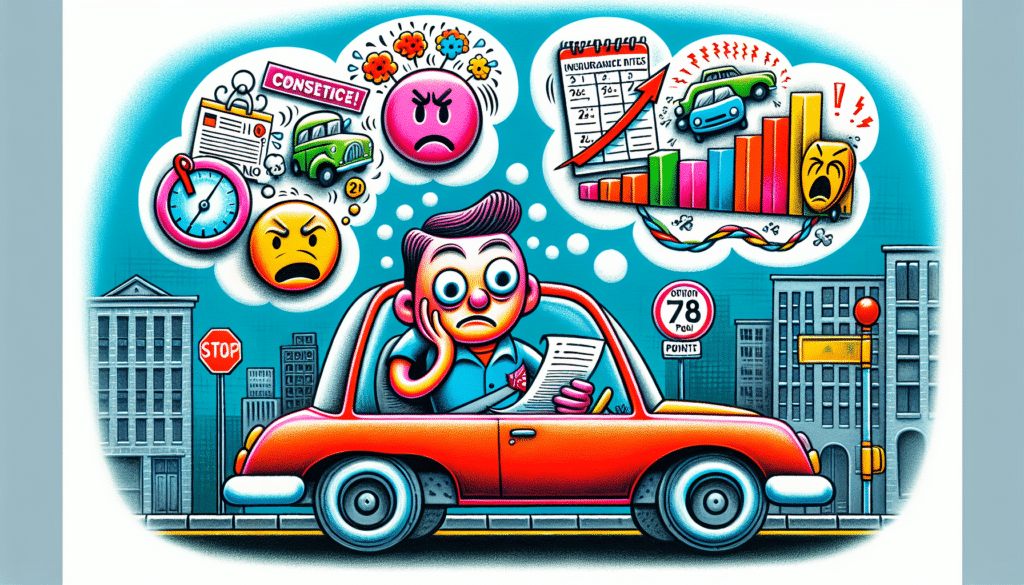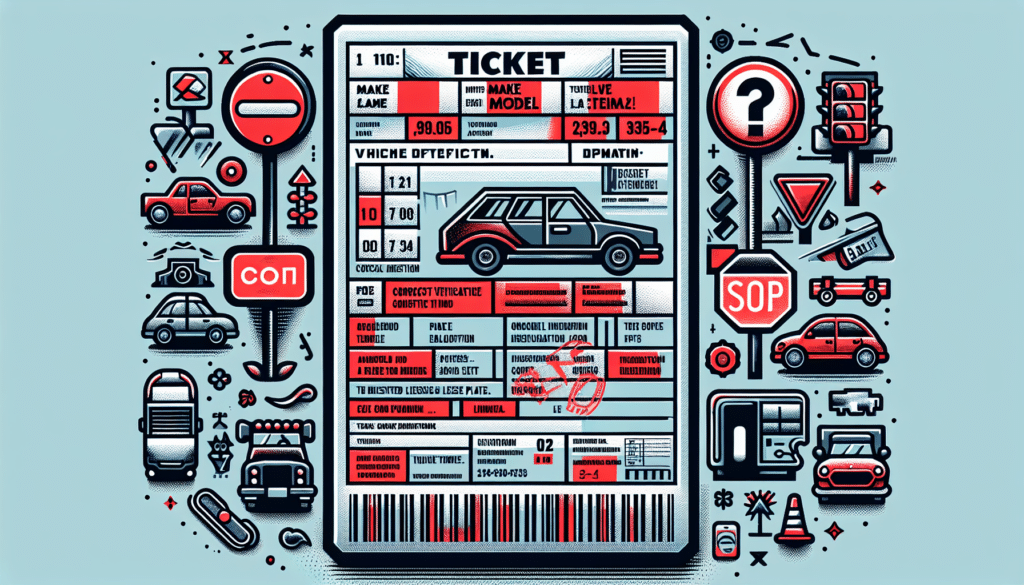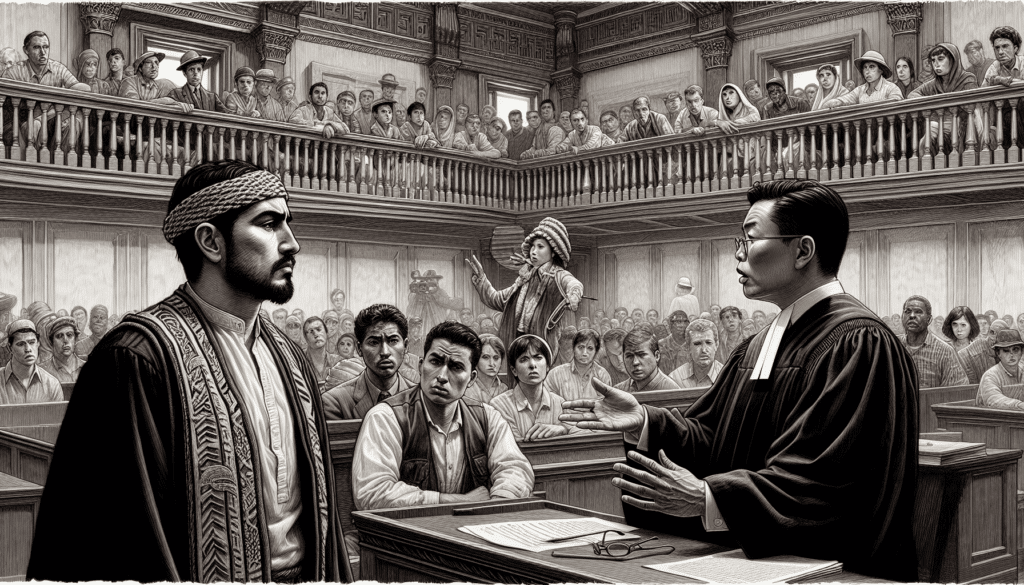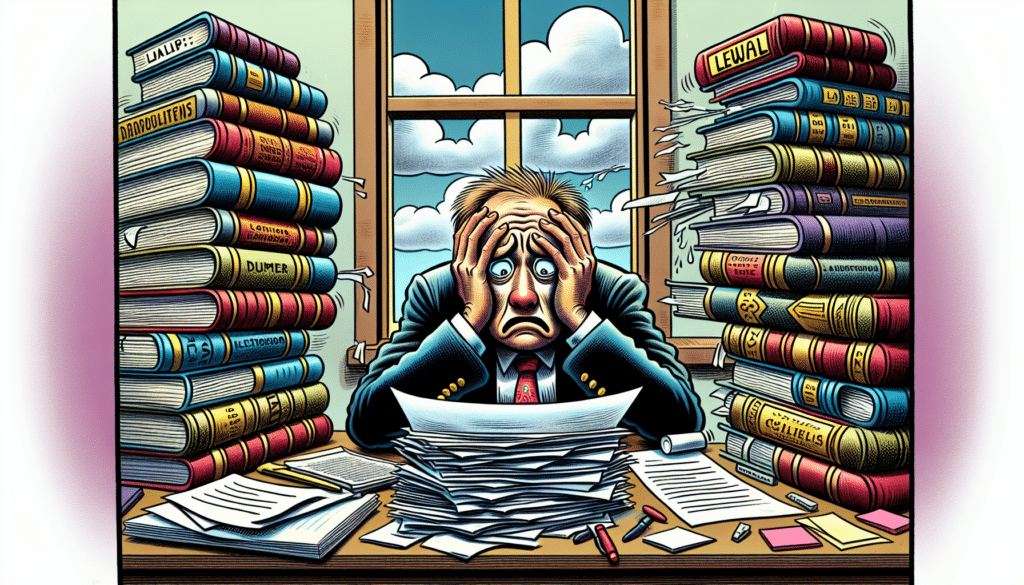Wondering how to get a traffic ticket dismissed for wrong information? If your ticket contains errors, you might have a chance to contest it. In this article, we’ll discuss how to spot these mistakes and the steps to get your ticket dismissed.
Key Takeaways
Traffic tickets can have severe consequences, including increased insurance premiums and a tarnished driving record, making it essential to challenge potential errors for dismissal.
Common mistakes on traffic tickets—such as incorrect dates, vehicle details, or procedural errors—can serve as valid grounds for contesting the citation effectively.
Hiring an experienced traffic attorney enhances your chances of ticket dismissal by navigating court procedures, gathering evidence, and developing a strong legal strategy.
Understanding Traffic Tickets and Their Impact

A traffic ticket, often referred to as a citation, outlines a traffic violation and the associated fine. Traffic tickets are more than just a piece of paper; they come with significant consequences. Accumulating traffic tickets can tarnish your driving record and lead to increased insurance premiums, sometimes as high as 82%. Reducing traffic violations is not just about avoiding fines; it’s about maintaining a clean driving record and lower insurance costs.
Common mistakes on traffic tickets can create opportunities for dismissal. From incorrect dates to wrong vehicle information, these errors can significantly alter the legal standing of your case. Understanding these mistakes and their potential consequences is crucial if you wish to contest a traffic ticket effectively.
The consequences of incorrect information on a traffic ticket can be severe. Identifying errors can lead to reduced fines, dismissed tickets, and protection of your legal rights. Recognizing how these mistakes can impact your case is the first step towards a successful challenge.
Common Mistakes on Traffic Tickets
Traffic tickets often contain minor errors that can be grounds for dismissal. Common mistakes include incorrect dates, wrong license plate numbers, and even the vehicle’s make and model. These errors might seem trivial, but they can significantly impact the validity of the ticket.
Officers may note incorrect details on tickets due to oversight or fatigue. For instance, they might mistakenly record the wrong vehicle information, such as the color or license plate number. Recognizing these minor errors can be your first step toward getting a traffic ticket dismissed.
Consequences of Incorrect Information
Incorrect information on a traffic ticket can have substantial consequences. Identifying these errors could lead to getting out of fines, points, or even having the ticket dismissed altogether. This is because incorrect details can significantly alter the legal standing of the case and shift the burden of proof.
Ensuring that all details on your traffic ticket are accurate is vital for protecting your legal rights and avoiding unnecessary penalties. By pointing out these inaccuracies, you can challenge the ticket effectively and potentially have it dismissed.
Identifying Errors on Your Traffic Ticket

Reviewing your traffic ticket meticulously is essential to identify potential inaccuracies that could lead to dismissal. Any mistake, no matter how minor, can cast doubt on the validity of the ticket and strengthen your case for dismissal.
Errors like incorrect dates, wrong vehicle information, or procedural mistakes can significantly impact the outcome of your case. By identifying and challenging these errors, you can increase your chances of getting the ticket dismissed.
Reviewing the Citation for Mistakes
When officers write down information incorrectly on traffic tickets, it often results from human errors. Common mistakes to look for include incorrect entries of the city of residence, hair color, or driver’s age. It’s crucial to review each detail on the ticket to ensure its accuracy.
Verifying the accuracy of your personal information and the details of the violation on the ticket is essential. By thoroughly reviewing the citation for mistakes, you can identify errors that may lead to dismissal.
Types of Errors That Can Lead to Dismissal
Incorrect information on the ticket is one of the main reasons for traffic ticket dismissal. Major errors, such as incorrect vehicle details or missing signatures, can substantiate grounds for dismissal. The significance of the mistake plays a crucial role in determining the outcome.
While major errors can lead to dismissal, minor mistakes like an incorrect age or date of birth are less likely to affect the outcome. Diligently reviewing the ticket for both major and minor errors can significantly impact your case.
Legal Grounds for Contesting a Traffic Ticket

Incorrect details on a traffic ticket can lead to its dismissal if properly challenged in court. Understanding the legal grounds for contesting a ticket involves knowing the relevant traffic laws and regulations. Each local jurisdiction has unique regulations regarding traffic violations, which can influence ticket contestation.
Significant inaccuracies, such as an incorrect appearance date or errors in the legal statutes cited, can provide sufficient grounds for legal challenges. Omissions of critical information on the ticket can also lead to its invalidation. Understanding the jurisdiction and local traffic laws is crucial for effectively disputing a traffic ticket.
Inaccurate details can shift the burden of proof, requiring the issuer to validate the ticket’s accuracy. This shift can undermine the prosecution’s case and potentially lead to dismissal. Knowing how these inaccuracies affect the burden of proof can bolster your defense.
Relevant Traffic Laws and Regulations
Each local jurisdiction has unique regulations that can influence how a traffic ticket is contested. Understanding these specific statutes can help identify if a ticket was issued improperly. This knowledge is essential for building a strong case against the citation.
Familiarity with the relevant traffic laws and regulations in your area can significantly bolster your defense when disputing a ticket. This understanding allows you to pinpoint any discrepancies or errors that may have occurred during the issuance of the ticket.
How Inaccuracies Affect the Burden of Proof
In traffic court, the burden of proof lies on the prosecution, meaning they must prove the defendant guilty beyond a reasonable doubt. Incorrect information on a ticket can shift this burden, requiring the issuer to validate the ticket’s accuracy. This shift can create reasonable doubt, making dismissal more likely.
Inaccurate details can undermine the prosecution’s case. Pointing out these inaccuracies helps challenge the validity of the ticket and potentially get it dismissed.
Steps to Challenge an Incorrect Traffic Ticket
Challenging an incorrect traffic ticket involves several steps. Common reasons for dismissing a traffic ticket include inaccurate information and technical errors. To dispute a traffic ticket, individuals typically must request a hearing within 30 days of its issuance to avoid late penalties.
Organizing all relevant facts and documentation before your court date enhances your ability to present a strong defense. This preparation is crucial for effectively challenging the ticket and increasing the chances of dismissal.
Gathering Evidence to Support Your Claim
Solid evidence is essential for effectively challenging a traffic ticket. Types of supporting evidence can include photographs, dashcam footage, and witness statements. Documentary proofs are essential for building a strong case and challenging the accuracy of your traffic citation.
Consider the specific requirements and admissibility rules related to evidence in your jurisdiction when disputing a ticket. Presenting solid evidence can significantly increase the chances of a favorable outcome.
Filing a Formal Dispute
Filing a formal dispute involves submitting your dispute in writing, including all necessary forms and evidence, within the specified timeframe. Disputes can be filed online, by mail, or through a mobile app, and in-person hearings should be scheduled if necessary.
Preparing for Court Appearance
Preparing for your court appearance is essential to ensure that you present your case effectively. To be well-prepared, you need to understand specific court procedures. This applies to the court where your case will be heard. It’s crucial to arrive punctually for your court appearance and to present yourself in a professional manner. Taking notes during the prosecution’s presentation enables you to address any unclear points during cross-examination.
Additionally, having an experienced traffic attorney can significantly improve your chances of successfully contesting the ticket. Legal representation ensures that you understand the legal process and can present a strong defense. By being well-prepared and professional, you can effectively challenge the prosecution’s case and increase your chances of a favorable outcome.
The Role of Legal Representation
Navigating the complexities of traffic ticket dismissals can be challenging, which is why legal representation is crucial. The Wyland Law Group, for example, specializes in traffic ticket defense, providing a focused approach to the challenges faced by drivers. Hiring an experienced traffic attorney can significantly improve your chances of successfully contesting complex cases or serious charges. Engaging an attorney who understands traffic laws and court proceedings is an essential step for any driver facing traffic tickets.
An experienced traffic attorney can guide you through the legal maze, help you understand court procedures, and develop a strong legal strategy. They can assist in gathering evidence, preparing for court, and presenting your case effectively. Leveraging their expertise helps navigate the legal system more effectively and increases your chances of getting the ticket dismissed.
When to Hire a Traffic Attorney
Hiring a traffic attorney may be essential for those facing severe consequences from a ticket, such as commercial drivers or individuals with numerous violations. It’s advisable to hire a traffic attorney for serious offenses that could result in license suspension. Experience in handling traffic cases is crucial when choosing an attorney, especially for serious charges.
When selecting an attorney, it’s important to compare several based on their experience and fee structures. Clear communication with a potential attorney during the initial consultation is essential for a good working relationship.
Be cautious of attorneys offering unusually low fees, as they may not be trustworthy or capable.
Finding the Right Attorney
Finding the right attorney involves seeking referrals from friends or colleagues who have used traffic attorneys. Hiring an experienced traffic attorney who understands local laws and court proceedings can greatly affect the outcome of your case.
Thorough research and selecting a reliable lawyer ensure the best legal representation for your traffic ticket case.
Practical Strategies for a Favorable Outcome

Employing practical strategies when facing a traffic ticket significantly increases the chances of ticket dismissal. Compelling evidence can tip the scales in your favor when contesting a traffic ticket. Legal representation ensures a professional presentation and thorough understanding of traffic laws, enhancing your defense. An experienced attorney increases the chances of dismissal or reduction of a traffic ticket through their knowledge and negotiation skills.
Strategies such as defensive driving courses, gathering documentary proofs, and ensuring the officer’s failure to appear can lead to ticket dismissals. Documents like flight itineraries and witness statements are crucial for establishing a necessity defense. Hospital records and doctor’s notes are important when claiming a medical emergency.
Combining thorough evidence, solid legal representation, and necessary documentation to gather evidence maximizes your chances of a favorable outcome.
Effective Presentation in Court
Effective communication is vital in court, ensuring that your arguments are clear and convincing. Maintaining a calm demeanor and professional appearance can greatly affect how judges and juries perceive you. If the evidence presented by the police officer is inconsistent, it may undermine their credibility in court.
Presenting a strong argument and remaining well-prepared helps effectively challenge the prosecution’s case.
Leveraging Witness Statements and Documentary Proofs
Utilizing witness statements is essential for bolstering your defense against traffic tickets. Having a witness present can provide additional perspectives that support your claims. Visual aids, such as photographs or dashcam footage, can be pivotal in illustrating inaccuracies in the traffic citation.
Combining witness statements and documentary proofs significantly enhances the strength of your defense against a traffic ticket.
What to Expect in Traffic Court
To prepare for your court appearance, arrive on time, dress appropriately, and present yourself professionally. Traffic ticket cases are usually addressed in traffic courts. They can also be heard in municipal courts. Traffic court proceedings commence with a plea from the driver. These proceedings are generally less formal than criminal court, focusing on legal violations rather than criminal behavior.
Knowing what to expect in traffic court can help you navigate the process more confidently. Understanding the roles of the judge, officer, and defendant, as well as your rights to challenge evidence and present your defense, can significantly impact the outcome of your case.
The Court Hearing Process
In a traffic court trial, there are no juries; a judge or commissioner makes the final decision. During a traffic court hearing, the officer presents evidence supporting the ticket, while the defendant can offer a defense. The officer who issued the ticket is usually required to present their evidence and testimony.
Both the officer and the defendant present their accounts of the incident. Defendants have the right to challenge the evidence presented against them and provide their own defense during the hearing.
Possible Outcomes and Their Implications
Outcomes in traffic court can include ticket dismissal, reduced fines, or a decision to uphold the citation. When a ticket is dismissed, the driver typically avoids fines and penalties associated with the citation. If the ticket is upheld, the driver may be required to pay the fine and penalties, which could affect their insurance rates.
A not guilty verdict results in no conviction appearing on the defendant’s driving record. Understanding these potential outcomes and their implications can help you better prepare for your case.
Protecting Your Driving Record

Traffic violations can significantly increase insurance premiums and negatively impact your driving record. Maintaining a clean driving record can lead to lower insurance premiums and fewer legal issues. Completing a defensive driving course can help erase points from your driving record.
Many states allow drivers to attend traffic school to avoid points for specific violations. Defensive driving courses can help remove points from a driver’s record or dismiss a traffic ticket. Completing a defensive driving course may reduce insurance premiums by up to 10% in many states.
Benefits of Defensive Driving Courses
Taking a defensive driving course allows drivers to refresh their knowledge of traffic laws and regulations. Defensive driving education can enhance overall driving skills, making individuals safer on the road. These courses teach techniques to anticipate and react to road hazards effectively.
The advantage of taking a traffic ticket dismissal course online is the flexibility to study at your own pace and from home. I Drive Safely offers online defensive driving courses that are state-specific. These online courses are available 24 hours a day, allowing you to study at your own pace.
Long-term Strategies for Safe Driving
Adopting safe driving habits consistently can lead to fewer traffic violations over time. Consistently avoiding traffic violations is key to maintaining a clean driving record. By driving safely and adhering to traffic laws, you can protect your driving record and avoid the negative consequences of traffic tickets.
Summary
Reviewing your traffic ticket for errors and challenging any inaccuracies can lead to a ticket dismissal and a clean driving record. Understanding common mistakes, their consequences, and the legal grounds for contesting a ticket empowers you to take proactive steps. With thorough preparation, solid evidence, and possibly legal representation, you can effectively navigate the process and achieve a favorable outcome. Take control of your driving record by staying informed and vigilant.
Frequently Asked Questions
What are common errors on traffic tickets that can lead to dismissal?
Common errors such as incorrect dates, wrong vehicle information, and misspellings of personal details can lead to the dismissal of traffic tickets. Ensuring accuracy in these areas is crucial for the ticket’s validity.
How can incorrect information on a traffic ticket affect the case?
Incorrect information on a traffic ticket can significantly weaken the prosecution’s case, potentially resulting in the dismissal of the ticket. Ensuring all details are accurate is crucial for a fair legal outcome.
What steps should I take to challenge an incorrect traffic ticket?
To effectively challenge an incorrect traffic ticket, first review the ticket for any errors and gather compelling evidence. Then, file a formal dispute within the specified timeframe and prepare thoroughly for your court appearance.
When should I hire a traffic attorney?
You should hire a traffic attorney when facing serious offenses that may lead to license suspension or significant penalties. Their expertise can help mitigate the consequences effectively.
How can defensive driving courses help with traffic tickets?
Defensive driving courses can effectively lead to ticket dismissal, reduce fines, and erase points from your driving record. Additionally, they enhance your understanding of traffic laws and improve your overall driving skills.




